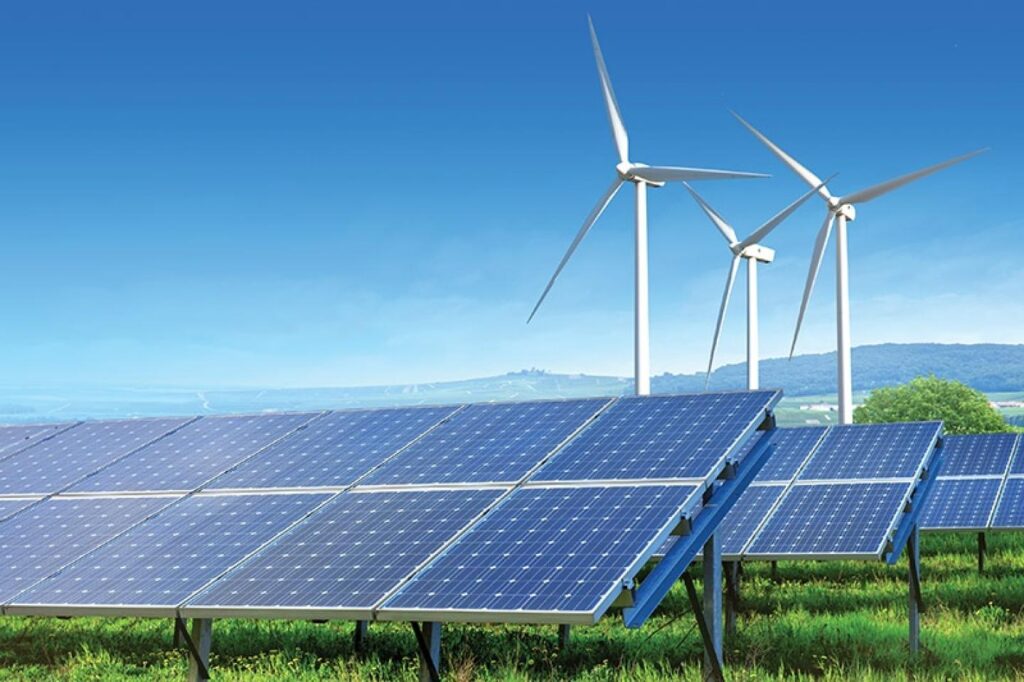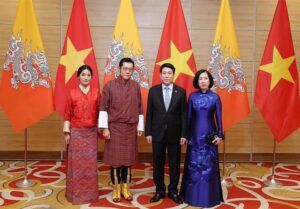Vietnam and Germany Strengthen Cooperation on Solar Energy Development

Hanoi, The Gulf Observer: There is significant potential for further collaboration between Vietnam and Germany in the energy sector, particularly in solar energy, as both nations navigate similar challenges in their energy transitions, said German Ambassador to Vietnam Helga Margarete.
In her remarks, Ambassador Margarete highlighted Vietnam’s potential in harnessing solar energy, noting that the country’s abundant solar resources provide an excellent opportunity for cost-efficient solar power generation. However, she emphasized the need for the development of smart grids and energy storage solutions to accommodate the growing share of variable renewable energy sources.
“Vietnam is perfectly positioned to capitalize on its solar energy resources,” said Margarete. “But as the share of variable renewable energy grows, the development of smart grids and storage will be crucial.”
Drawing on Germany’s experience, the ambassador pointed out that the country was the first to implement large-scale feed-in tariffs for solar power, a policy that laid the foundation for a dynamic solar market. She emphasized that solar power now accounts for 58% of Germany’s total electricity generation, with a solar capacity exceeding 80 gigawatts. Solar energy has become the cheapest source of electricity and a significant job creator, employing millions worldwide.
“Germany’s experience shows that solar energy can drive climate action, reduce energy costs, and contribute to economic growth,” she said.
Ambassador Margarete also stressed that Germany has been a close partner to Vietnam in renewable energy for over 15 years, and that collaboration in solar energy development could unlock significant opportunities. “Vietnam has more sun and more solar potential than we do. We can exchange knowledge and expertise to create a sustainable future for the region,” she added.
Philipp Munzinger, Director of the Energy Support Programme at the Deutsche Gesellschaft für Internationale Zusammenarbeit (GIZ), also emphasized the role of rooftop solar in Vietnam’s energy transition. He pointed out that less than 1% of Việt Nam’s estimated roofs currently have rooftop solar installations, highlighting a vast untapped potential.
“Rooftop solar will play a key role in decarbonizing Vietnam’s energy system and creating a resilient, cost-efficient, and clean energy future,” said Munzinger. He noted that the decreasing cost of solar panels and battery storage will make rooftop solar more economically attractive to both households and commercial entities.
Munzinger also urged the Vietnamese government to set an example by installing rooftop solar systems on public buildings, as stipulated in the National Power Development Plan VIII. Such actions, he said, would send a strong signal to the market.
Vietnam has made significant strides in solar energy, having installed approximately 17 gigawatts of solar capacity since 2020, making it a leader in solar power in ASEAN. More than 100,000 rooftop solar systems account for about 50% of this capacity, which plays a vital role in Vietnam’s path toward net-zero emissions by 2050.
Recent regulatory changes, such as Decree 80/2024/NĐ-CP on Direct Power Purchase Agreements and Decree 135/2024/NĐ-CP promoting rooftop solar self-consumption, are expected to further strengthen the rooftop solar market.
In collaboration with the Ministry of Industry and Trade and Vietnam Electricity, the GIZ has also launched the Commercial and Industrial Rooftop Solar project (CIRTS) to foster sustainable development of rooftop solar in Vietnam.


